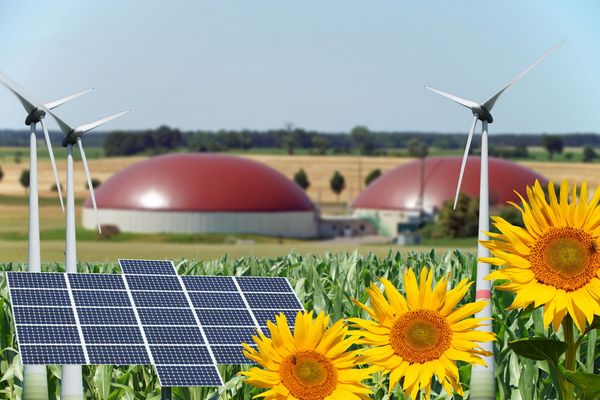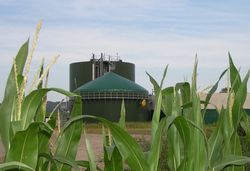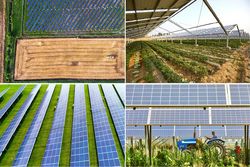Toward a goal of greenhouse gas (GHG) neutrality, the production and use of renewable raw materials and renewable energies is promoted. The share of renewable energies in the electricity mix is set to increase from 47 % currently to 80 % in 2030. The renewable energy act 2023 defines the framework for this. Furthermore, in the long run, it will be necessary to switch from petroleum-based feedstocks to renewable carbon in the organic chemical industry. Renewable raw materials currently are the only alternative in this regard.
Therefore, the question arises how the upcoming additional demands on land use can be met efficiently in the future.
So far, renewable raw materials have been cultivated on 2.6 million hectares in Germany, of which more than 90 % is used for bioenergy and only 10 % as industrial raw materials. Additional ground-mounted photovoltaic (PV-)Systems are installed on 25,500 hectares.
However, it is questionable whether the right path has been taken so far: On a global scale, the increasing consumption of land for bioenergy production is criticised under the headline “food or fuel”; economists conclude that climate protection through bioenergy is very costly compared with alternative measures. Also, with regard to the future expansion of solar and wind energy, different questions arise: How much land will be required in the future? How does it impact agriculture? How can the land requirement be reduced? On the other hand, the developments open new business opportunities for agricultural entrepreneurs.
How to move forward?
We want to provide guidance. Therefore, we analyze and evaluate how changing framework conditions affect the competitiveness of renewable raw materials and renewable energies. With our results we want to support politics and society to create the right framework conditions for a sustainable and efficient production of renewable energies and renewable raw materials on agricultural land.
We are currently investigating the following questions:
How efficient are different types of renewable energy in terms of GHG savings and energy yields?
What impact does bioenergy support have on the competitiveness of German agriculture?
How do technological innovations and changes in the legal framework affect renewable energy generation?
How can the future expansion of PV systems on agricultural land be designed efficiently?







![[Translate to English:] Logo des Bundesministerium für Ernährung und Landwirtschaft](/media/allgemein/logos/BMEL_Logo.svg)